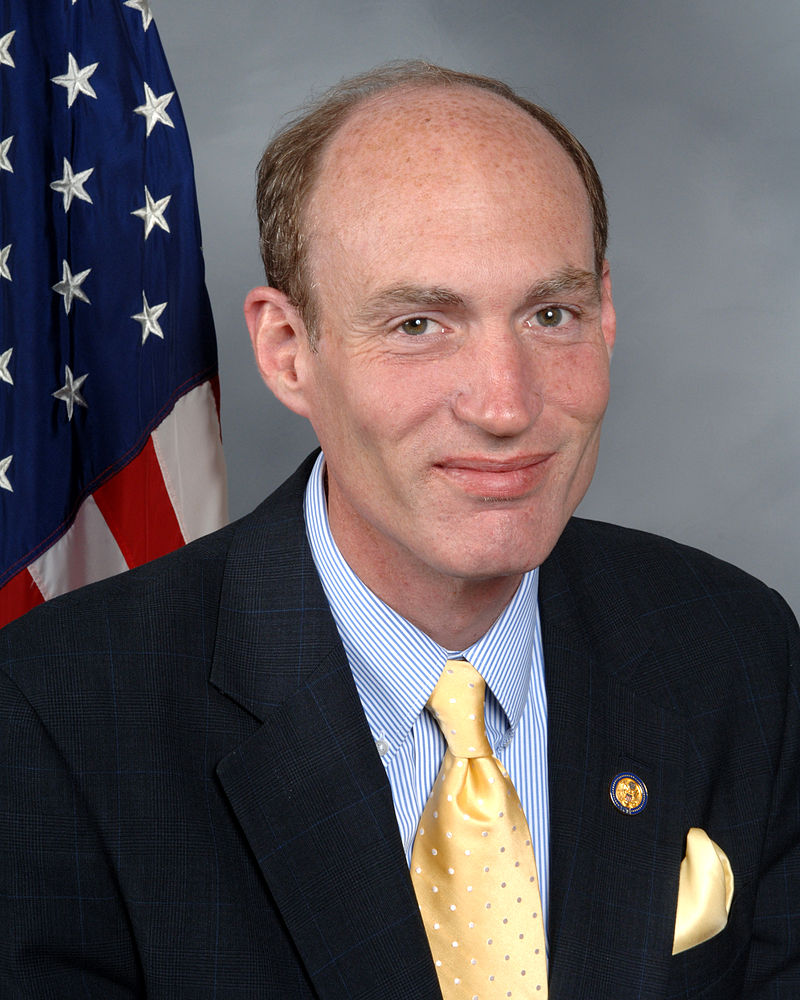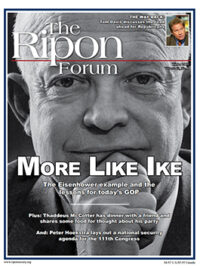
At a recent political dinner, a tablemate named Andrea soberly inquired, “Who are you reading these days?”
“Jagger and Richards,” I replied. “Shattered captures the Republican zeitgeist.”
“No, no,” Andrea corrected me with a wave of her hand. “What political writers are you reading?”
“The pillars,” I said, grasping her aim and the ranch dressing, “Kirk, Burke, Buckley, and Eliot.”
She sighed. “Who are you reading that’s not dead?”
“Those cats are more alive than ever.” I tore into my salad.
She leaned forward with a furrowed brow. “Aren’t you afraid of missing it?”
“‘The End of History?’” I slobbered through a mouthful of lettuce. “What a crock of – “
“I meant the next Republican wave.”
“Go on.” she instructed, her food still untouched. “It’ll ruin your appetite,” I replied, wiping off my fork and poking my chicken.
I reflexively spit out a gnawed crouton that clinked off her wine glass and plopped on her plate. “Without Kirk, Burke, Buckley and Eliot, Republicans will only wave goodbye,” I pronounced.
“I utterly disagree,” she said, deftly pushing aside her plate. “The movement needs new ideas and fresh faces.”
“You mean panaceas and pin-ups?” I grumbled. “Silver bullets and baby faces work on werewolves and teeny-boppers, not on Democrats.”
“Oh, I’ve forgotten,” she said, slumping back and rolling her eyes. “You’re the one who thinks the party doesn’t need re-branding.”
“We tried that. It put us in the minority. Re-branding is a marketing scam that re-packages bland products for mass consumption. The Republican Party is a transformational political movement. It must be again, or no amount of re-branding can save it or sell it.”
Andrea warily sipped some wine and glared at me from behind her glass. “So what do you propose?”
For a second, I felt like Ted Nugent speed dating Peggy Noonan. Then the waiter cleared away our salad plates and served the chicken-ala-thing course. “Look at this road kill,” I muttered, grimacing at my entrée. “It’s so raw it looks like the driver didn’t have the courtesy to back up and finish it off.” I tossed my fork onto the plate and gravy splattered onto my tie.
“As I was saying,” she icily continued, “I don’t think you have any idea how to fix the party and start the next Republican Revolution.”
I casually dipped my tie into her water and started dabbing at my freshly stained neckwear. “Republicans don’t start revolutions,” I reminded her. “Republicans inspire restorations.”
“Fine,” she huffed. “Then how would you fix the party and inspire a restoration?”
“Common sense conservatism.”
“How quaint.”
“And correct,” I riposted. “The Republican Party exists to keep America the greatest nation on Earth. Unfortunately, we stumbled along the way, and now the public views us as an ideologically obsessed party of chaos and collapse – Katrina , Iraq , the credit crisis and bailouts, the list goes on. This is the antithesis of Republicanism. We’re a philosophical party that is supposed to practice politics as ‘the art of the possible’, channel constructive change for Americans, and preserve order, justice and freedom.
“And we couldn’t have picked a worse time to screw this up,” I continued, “because disorder is rampant at this transformational moment in American history.”
“Transformational in what way?” she asked. “Economically?”
“This is the second point,” I said, my hunger pangs causing me to reconsider skipping the entrée. ” America isn’t an economy or a bureaucracy. America is a country of honest, hard-working and loving people struggling to pursue their happiness. And, like the ‘Greatest Generation’, today’s ‘Global Generation’ of Americans’ pursuit of happiness is imperiled by four major challenges. We’ve got to recognize these challenges and empathize with people’s struggles amidst them.”
“Go on,” she instructed, her food still untouched.
“It’ll ruin your appetite.” I wiped off my fork and poked my chicken.
“Your ‘road kill’ remark did that.”
“Yeah … anyway, America ‘s Greatest Generation surmounted a quartet of transformational challenges: industrialization’s economic, social, and political upheavals; a world war against an evil; the Soviet Union ‘s rise as a strategic threat and rival model of governance; and the moral struggle for equal civil rights.
I casually dipped my tie into her water and started dabbing at my freshly stained neck-wear. ” Republicans don’t start revolutions,” I reminded her. “Republicans inspire restorations.”
“Today, America’s Global Generation confronts globalization’s economic, social and political upheavals; a world war against an evil enemy; Communist China’s rise as a strategic threat and rival model of governance; and moral relativism’s erosion of our nation’s self-evident truths.”
She took a gulp of wine. “There must be differences between the two situations?”
“Yes,” I said, finishing off my entrée. “The Greatest Generation faced their crises consecutively. Our Global Generation faces these challenges simultaneously.”
The waiter removed my empty plate and her untouched entrée and replaced them with thick pieces of apple pie. I started to make quick work of mine, but she just stared at her plate.
“I have truly lost my appetite,” she said, though she did order another wine from the waiter.
I ordered some milk. “I’ve driven you to a liquid diet,” I joked between bites. “Don’t worry. It’ll get better.”
“How and how soon?” she asked, nervously tapping at her glass.
“If we stay ideologically obsessed and stumble about looking for quick fixes and false messiahs pretty faces, it will never happen.”
“I thought you said ‘don’t worry.’”
“Don’t worry, work. Then, when Republicans once again practically apply our five enduring principles to empower people, these challenges will be transcended. The virtuous genius of the American people will see to that.”
“And these are the principles we strayed from,” she dolefully acknowledged.
“Yep.” I held up my hand and counted them off: “Our liberty is from God not the government. Our sovereignty rests in our souls not the soil. Our security is through strength, not surrender. Our prosperity is from the private sector not the public sector. And our truths are self-evident, not relative.”
As the waiter delivered her wine and my milk, I reached for her dessert.
She slapped away my hand. “What are you’re doing?”
“Being entrepreneurial,” I retreated. “After all, I am a Republican.”
“So am I,” Andrea smiled, poised for the coup de grace. “That’s why I think it’s unjust for you to take the liberty to redistribute my piece of the pie, when you can order another slice for yourself. Order, justice, and freedom – remember?”
“How could I forget?”
United States Representative Thaddeus G. McCotter (MI-11) is the Chair of the Republican House Policy Committee




